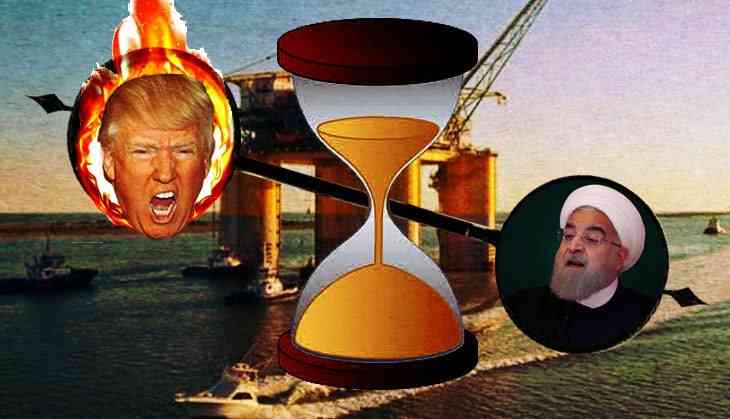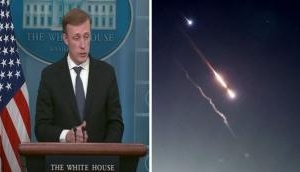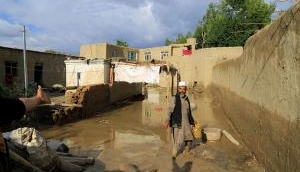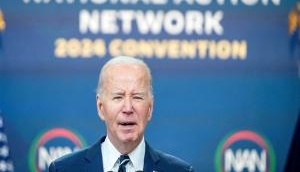
War clouds are thickening over the Islamic Republic of Iran. Washington has unprecedentedly taken several extreme measures against the regime of the Ayatollahs. The first element is ceasing to grant oil waivers to Iran’s biggest customers including China, India, Japan, South Korea and Turkey. The second element is designating the Islamic Revolutionary Guard Corps (IRGC) as a terrorist entity. The third and most important is sending a US aircraft carrier to the Persian Gulf.
Apparently, Pentagon received credible intelligence from Israel that Iran was plotting an attack against US interests in the region. Surprisingly, a few days after the American decision to fortify its naval fleet in the Persian Gulf, two Saudi oil tankers were attacked and damaged off the coast of the United Arab Emirates. Naturally, the attack sent oil prices higher while heightening military tensions in the Iranian neighbourhood.
No country has publicly blamed Iran for the attacks, but such incidents make everybody nervous about the possibility of a future confrontation between Iran and the US. However, the question remains: is the Iranian regime so clumsy to provoke an American attack against its military and nuclear infrastructures? Probably not, though Iran does not seem to be fully aware of its military adventures in the Middle East. Iranian authorities still believe that the American administration does not have the will or the capacity to become engaged in a war with Iran, and that only Saudi Arabia and Israel are pushing the Trump administration in that direction.
This assumption is far from being true and realistic, since America’s problems with Iran are structural and ideological and they go back to the early years of the Iranian revolution and the hostage-taking at the American embassy. The release of 52 American diplomats and citizens by the Iranian regime on January 20, 1981 was not an end to hostilities between Iran and the US, it was a beginning.
Let us be clear, even if Hillary Clinton was elected in the American presidential elections of 2016, she also would have most likely hardened U.S. policy towards Iran. But with the Trump administration, the problem is not only a reaction to Iran’s nuclear ambitions, but also safeguarding Israel and its Arab allies against Iranian hegemony in the Middle East.
Therefore, countries like India can do nothing to prevent a war between Iran and the US if the former’s nerves give away and the Iranian Revolutionary Guards attack inadvertently a Bahraini or Emirate ship. One way or another, Iran is the great loser of this war and the Saudis and Israelis the great winners. The Saudis are already winning on the shortage created by the U.S. president’s economic war on Iranian oil.
The Wahabi kingdom has decided to raise its own output to meet all requests from countries that have had to stop buying Iranian crude. Strangely enough, since Trump administration’s attack on Iranian oil Saudis are also back into business with India. Until the end of the waivers for countries importing Iran oil, India was Iran’s second-largest customer. But today Saudis want nothing more than to take the place of their enemy in the Indian market. It is true that bilateral trade between Riyadh and New Delhi stands at $28 billion, but Saudi Aramco is thinking much bigger in order to invest in India’s refining and petrochemical industries. As for the Indian government, signing with Saudi Aramco will be a giant step toward larger geopolitical perspectives.
There are three reasons for this decision. First, despite its friendly diplomacy in relation to Iran, New Delhi knows well that the Islamic regime has no future in global affairs. Second, we should not forget that Indians make up the largest expatriate community in Saudi Arabia. Thirdly, the economic rapprochement has also political consequences which mean that Riyadh could gradually turn its back to Pakistan in its geopolitical struggles and pledge to sign more security-based contracts with New Delhi.
It goes without saying that Iran’s fortunes will not change even if a new president replaces Trump at the White House in 2020. So, by the time Iran finds itself a new dignified image in the global community, India-Saudi relations will be booming and Saudis will have a great advance in the energy market of the subcontinent.
Undoubtedly, foreign observers will not fail to recognise its pragmatism and diplomatic ingenuity in trying to maintain its energy and strategic partnership with Iran. But a weak Iran in war with the US or in turmoil can be of no help to India in order to counter-balance Pakistan and secure its Afghan interests in the long term. Let us be frank, if the Saudis become an invaluable economic and strategic partner for India, Iran will be no more India's sole gateway to Central Asia.







![BJP's Kapil Mishra recreates Shankar Mahadevan’s ‘Breathless’ song to highlight Delhi pollution [WATCH] BJP's Kapil Mishra recreates Shankar Mahadevan’s ‘Breathless’ song to highlight Delhi pollution [WATCH]](http://images.catchnews.com/upload/2022/11/03/kapil-mishra_240884_300x172.png)

![Anupam Kher shares pictures of his toned body on 67th birthday [MUST SEE] Anupam Kher shares pictures of his toned body on 67th birthday [MUST SEE]](http://images.catchnews.com/upload/2022/03/07/Anupam_kher_231145_300x172.jpg)






